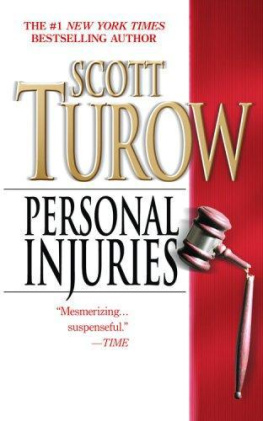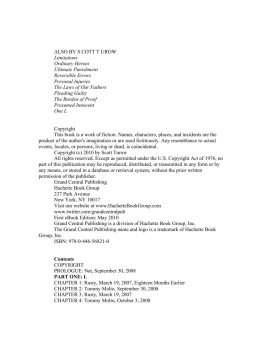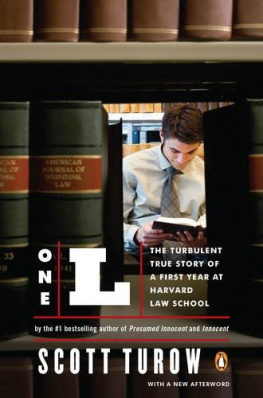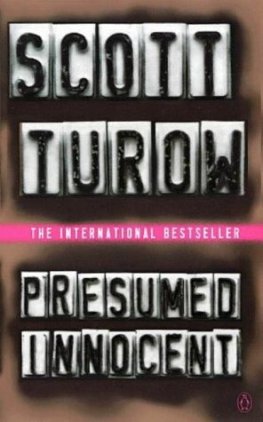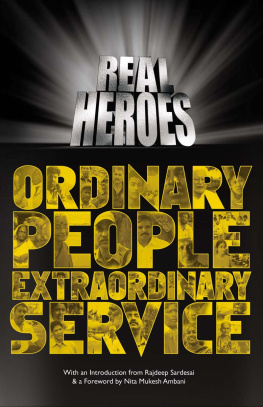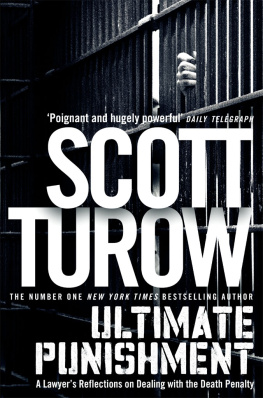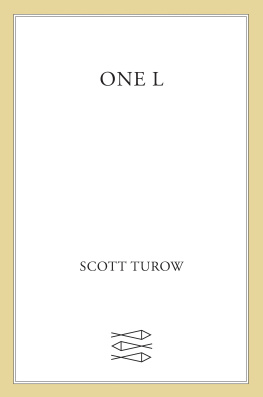Scott Turow - Ordinary Heroes
Here you can read online Scott Turow - Ordinary Heroes full text of the book (entire story) in english for free. Download pdf and epub, get meaning, cover and reviews about this ebook. year: 2006, publisher: Grand Central Publishing, genre: Detective and thriller. Description of the work, (preface) as well as reviews are available. Best literature library LitArk.com created for fans of good reading and offers a wide selection of genres:
Romance novel
Science fiction
Adventure
Detective
Science
History
Home and family
Prose
Art
Politics
Computer
Non-fiction
Religion
Business
Children
Humor
Choose a favorite category and find really read worthwhile books. Enjoy immersion in the world of imagination, feel the emotions of the characters or learn something new for yourself, make an fascinating discovery.
- Book:Ordinary Heroes
- Author:
- Publisher:Grand Central Publishing
- Genre:
- Year:2006
- Rating:4 / 5
- Favourites:Add to favourites
- Your mark:
- 80
- 1
- 2
- 3
- 4
- 5
Ordinary Heroes: summary, description and annotation
We offer to read an annotation, description, summary or preface (depends on what the author of the book "Ordinary Heroes" wrote himself). If you haven't found the necessary information about the book — write in the comments, we will try to find it.
Ordinary Heroes — read online for free the complete book (whole text) full work
Below is the text of the book, divided by pages. System saving the place of the last page read, allows you to conveniently read the book "Ordinary Heroes" online for free, without having to search again every time where you left off. Put a bookmark, and you can go to the page where you finished reading at any time.
Font size:
Interval:
Bookmark:
Ordinary Heroes
Scott Turow
*
Stewart Dubinsky Knew His Father Had Served In World War Ii, a nd he'd been told how David Dubin (as his father had Americanized the name that Stewart later reclaimed) had rescued Stewart's mother from the horrors of the Balingen concentration camp. But when, after his father's death, he discovers a packet of wartime letters to a former fiancee and learns of his father's court-martial and imprisonment, he is plunged into the mystery of his family's secret history and is driven to uncover the truth about this enigmatic, distant man who always refused to talk about his war.
As he pieces together his father's past through military archives, letters, and, finally, notes from a memoir his father wrote in prison, secretly preserved by the officer who defended him, Stewart starts to assemble a dramatic and baffling chain of events. Reconstructing the terrible events and agonizing choices hi s f ather faced on the battlefield, in the courtroom, and in love, gains a closer understanding of his past, of his father's character, and of the brutal nature of war itself.
.
Dearest Grace--
My sickness is over, and I love you and miss you more than ever! Yesterday I got up feeling fine and ran to breakfast and I have been well ever since. I am beginning to know the routine aboard this commandeered cruise ship, where much of the civilian staff remains on duty--including Indian wallahs who serve the officers in our staterooms. We also have a wonderful band that three or four times a day strikes up sentimental classical numbers in the old first-class dining room, which is still turned out with baubled chandeliers and red velvet drapes. The enlisted men below enjoy many fewer luxuries, but even they know-their accommodations are a marked improvement over what they'd get on most of the Navy's old buckets.
With Tchaikovsky on the air, I sometimes forget we are in a war zone and distinctly treacherous waters. Yet with time on my hands, I suppose it's natural that thoughts of what may lie ahead occasionally preoccupy me. During the four days of sickness after we sailed from Boston, I naturally spent long periods on deck. For all the sophistication I like to think I acquired at Easton College and in law school, I am still a Midwestern hick. Until now, I have never been on a body of water broader than the Kindle River, and there have been moments when I've found the vastness of the Atlantic terrifying. Gazing out, I realize how far I have gone from home, how alone I am now, and how immaterial my life is to the oceans, or to most of the people around me.
Of course, with my transfer to the Judge Advocate General's Department, I have much less to fear than when I was training as an infantry officer. The closest I am likely to get to a German is to give advice about his treatmen t a s a POW. I know you and my parents are relieved, as I am, too, but at other moments I feel at sea. (Ho ho!)
I'm not sure why God sets men against each other in war--in fact, I'm no surer than ever that I believe in God. But I know I must do my part. We all mus do our parts, you at home and us here. Everything our parents taught us--my parents and your parents, different though they may be--is at stake. I know this war is right. And that is what men--and Americans, especially--do. They fight for what is right in the world, even lay down their lives if that's required. I still feel as I did when I enlisted, that if I did not take up thi s f ight, I would not be a man, as men are. As I must be. There are instants when I am actually jealous of the soldiers I am traveling with, even when I see them overcome by a sudden vacancy that I know is fear. They are imagining the bullets sizzling at them in their holes, the earthquake and lightning of bombs and artillery. But I envy who they will become in the forge of battle.
I promise you that such insanity passes fleetly and that I'll happily remain a lawyer, not a foot soldier. It is late now and they say there are heavy seas ahead. I should sleep while I can.
Good night, darling. I'll see you in my dreams!
With love forever , David.
Chapter
STEWART: ALL PARENTS KEEP SECRETS
All parents keep secrets from their children. My father, it seemed, kept more than most. The first clue came when Dad passed awa y i n February 2003 at the age of eighty-eight, after sailing into a Bermuda Triangle of illness--heart disease, lung cancer, and emphysema--all more or less attributable to sixty years of cigarettes. Characteristically, my mother refused to leave the burial details to my sister and me and met the funeral director with us. She chose a casket big enough to require a hood ornament, then pondered each word as the mortician read out the proposed death announcement.
"Was David a veteran?" he asked. The undertaker was the cleanest-looking man I'd ever seen, with lacquered nails, shaped eyebrows, and a face so smooth I suspected electrolysis.
"World War II," barked Sarah, who at the age of fifty-two still raced to answer before me.
The funeral director showed us the tiny black rendering of the Stars and Stripes that would appear in the paper beside Dad's name, but my mother was already agitating her thinning gray curls.
"No," she said. "No war. Not for this David Dubin." When she was upset, Mom's English tended to fail her. And my sister and I both knew enough to keep quiet when she was in those moods. The war, except for the bare details of how my father, an American officer, and my mother, an inmate in a German concentration camp, had fallen in love, virtually at first sight, had been an unpleasantness too great for discussion throughout our lives. But I had always assumed the silence was for her sake, not his.
By the end of the mourning visitation, Mom was ready to face sorting through Dad's belongings. Sarah announced she was too pressed to lend a hand and headed back to her accounting practice in Oakland, no doubt relishing the contrast with my unemployment. Mom assigned me to my father's closet on Monday morning, insisting that I consider taking much of his clothing. It was nearly all disastrously out of fashion, and only my mother could envision me, a longtime fatso, ever shrinkin g e nough to squeeze into any of it. I selected a few ties to make her happy and began boxing the rest of his old shirts and suits for donation to the Haven, the Jewish relief agency my mother had helped found decades ago and which she almost single-handedly propelled for nearly twenty years as its Executive Director.
But I was unprepared for the emotion that overtook me. I knew my father as a remote, circumspect man, very orderly in almost everything, brilliant, studious, always civil. He preferred work to social engagements, although he had his own polite charm. Still, his great success came within the mighty fortress of the law. Elsewhere, he was less at ease. He let my mother . H old sway at home, making the same weary joke for more than fifty years--he would never, he said, have enough skill as a lawyer to win an argument with Mom.
The Talmud says that a father should draw a son close with one hand and push him away with the other. Dad basically failed on both accounts. I felt a steady interest from him which I took for affection. Compared to many other dads, he was a champ, especially in a generation whose principal ideal of fathering was being a 'good provider.' But he was elusive at the core, almost as if he were wary of letting me know him too well. To the typical challenges I threw out as a kid, he generally responded by retreating, or turning me over to my mother. I have a p erpetual memory of the times I was alone with him in the house as a child, infuriated by the silence. Did he know I was there? Or even goddamn care?
Now that Dad was gone, I was intensely aware of everything I'd never settled with him--in many cases, not even started on. Was he sorry I was not a lawyer like he was? What did he make of my daughters? Did he think the world was a good place or bad, and how could he explain the fact that the Trappers, for whom he maintained a resilient passion, had never won the World Series in his lifetime? Children and parents can't get it all sorted out. But it was painful to find that even in death he remained so enigmatic.
Next pageFont size:
Interval:
Bookmark:
Similar books «Ordinary Heroes»
Look at similar books to Ordinary Heroes. We have selected literature similar in name and meaning in the hope of providing readers with more options to find new, interesting, not yet read works.
Discussion, reviews of the book Ordinary Heroes and just readers' own opinions. Leave your comments, write what you think about the work, its meaning or the main characters. Specify what exactly you liked and what you didn't like, and why you think so.

